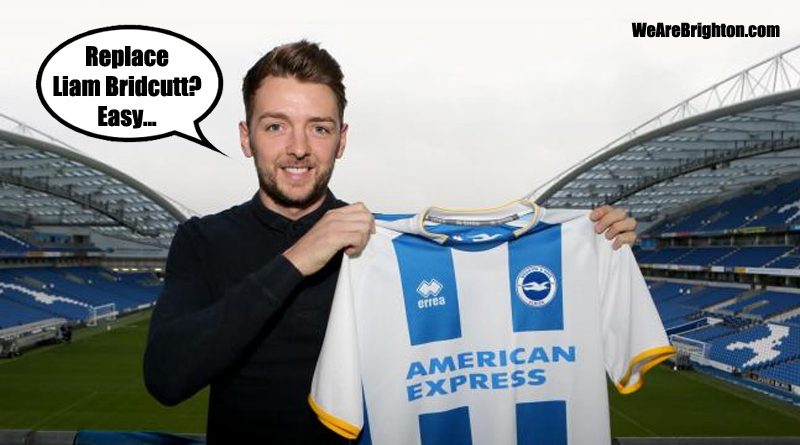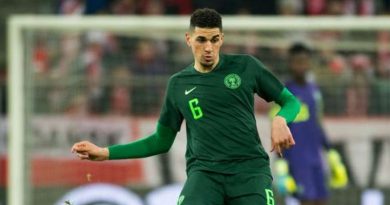Dale Stephens, 200 appearances and his Potterball reinvention
Now seems like as good a time to talk about Dale Stephens as any. The midfielder made his 200th appearance for Brighton in the 2-0 defeat against Leicester City and yet despite reaching such an impressive landmark, he remains criminally underrated.
Of course, Albion fans have a long and proud tradition of never truly appreciating the work that goes into what is sometimes harshly referred to as the water-carrier role.
Not many people mourned the departure of Dean Hammond to Colchester United for a ludicrously low £250,000 in January 2008, largely because Hammond wasn’t the most glamorous of players. It was only when Dean Wilkins tried to replace him with Steve Thomson that you realised just how good Hammond was.
See also Andrew Crofts. So important did Gus Poyet view him that Poyet’s first act as Brighton manager was to make Crofts captain. Crofts had two spells as a first team player with the Albion and was re-signed in the summer for a third time as member of the Under 23s squad. Despite being 35-years-old.
Charlie Oatway seems to be remembered these days as a little runt who would just go around kicking people. He was actually a good footballer as well as a man who you wouldn’t want to meet down a dark alley, something that gets overlooked because he too was someone who would happily get through all the dirty work for the team.
This brings us nicely onto Stephens. He is arguably one of the best water-carriers Brighton have ever had. He selflessly sits in front of the back four, breaking up play, putting in the yards and trying to turn defence into attack.
Like Oatway, Crofts and Hammond before him, Stephens is one of those players whose importance to the side you don’t notice until he is missing. He’s someone that unless you watch live to see what he does off the ball, you can never truly appreciate just how good he is.
Which makes the fact that some Albion fans still don’t rate him all the more frustrating. There’s a reason that Oscar Garcia, Chris Hughton and now Graham Potter have all had Stephens as one of the first names on their team sheets.
Stephens arrived from Charlton Athletic for a bargain fee of around £800,000. It was the same January day in 2014 that Liam Bridcutt moved to Sunderland for £3m.
Bridcutt was one of the few holding midfielders who did got the appreciation they deserved when in Brighton colours.
His departure for the Stadium of Light to link up again with Poyet was greeted with real sadness and anger; here we were selling the bloke who’d won Player of the Season in back-to-back years for a knockdown fee because he’d basically gone on strike.
Great player Bridcutt may have been, but his actions in forcing through a move ensured his popularity took a kicking.
Which was a shame as this was a player who’d personified Brighton’s passing football under Poyet more than anyone else, who’d bought in the biggest transfer fee we’d ever received at that moment and who was responsible for great moments such as “the stuff of dreams, the stuff of champions” volley against Carlisle United.
Nobody could have predicted it at the time given how important Bridcutt was to the Albion, but we were actually pulling off an excellent piece of business.
Given the trajectory of their respective careers since, swapping Bridcutt for Stephens and making a profit of £2.2m in the process represents an astonishingly good deal nearly six years down the line.
Stephens has been an ever-present since the day he arrived, bar the first half of the 2014-15 season which he had to sit out through injury.
In fact, he didn’t play a single minute of football under Sami Hyypia. His first appearance of that terrible battle against relegation not coming until February 2015, a month into Hughton’s reign.
Now, Hyypia clearly didn’t help himself by being clueless, but is it coincidence that our worst season this decade came at the one time when Stephens was holed up in the physio’s room for nearly nine months?
With Stephens fit and firing again and forming an unbreakable partnership in the middle of the park with Beram Kayal, the Albion went from looking like a side certain to drop into League One to becoming a team that was just two goals away from promotion to the Premier League inside of a year.
Brighton’s eventual promotion was based on strong partnerships across the pitch. Lewis Dunk and Shane Duffy at the back. Anthony Knockaert feeding Glenn Murray in attack. And in the middle of the park, Kayal and Stephens for the most part.
There’s a reason that Steve Sidwell and Oliver Norwood – now captaining top six chasers Sheffield United – were third and fourth choice midfielders behind Stephens and Kayal that year.
Had the Albion not won promotion, then Stephens would have made it to the Premier League without us anyway. In one of the worst kept transfer secrets of recent times, he would have sought top flight football by moving to Burnley – and nobody could have denied him the right to try his luck at the highest level.
Luckily for us, Hughton led us to the Premier League and Stephens as a result signed a new four-year deal. He celebrated by singing “Burnley’s a shit hole” on stage at Hove Lawns in front of 70,000 people at the promotion parade while pissed out of his head. How can you not love someone like that?
Of course, it hasn’t all been plain sailing for Stephens. The second half of last season saw him suffer an alarming drop off in form, even more so than the majority of his teammates.
Stephens seemed to be impacted more than most by Hughton’s switch from 4-4-1-1 to 4-3-3. For the first 18 months of the Albion’s Premier League journey, he had Davy Propper alongside him in another partnership that brought out the best in both individuals concerned.
In 4-3-3, Hughton asked Stephens to fill the Sergio Busquets role as the one holding midfielder. This wasn’t a role to which Stephens was suited as his game increasingly became more haphazard and defensive.
There were countless problems with 4-3-3 – and ultimately, the run of results that followed the change cost Hughton his job – but one of the biggest was the way in which Stephens looked so lost, his effectiveness blunted.
We’d been in a relegation battle in 2014-15 when Stephens missed most of the campaign injured. Here we were in another one in 2018-19 when Hughton was playing him in a role he was ill suited to play.
Two seasons in which we’ve relied on the ineptitude of others to keep us up in the two seasons in which Stephens either wasn’t available or wasn’t used to his best? Again, ask yourself if that is a coincidence.
That left plenty of questions hanging over Stephens in the summer. Where would he fit into Graham Potter’s brave new world? Lots of Brighton fans thought his time at the club would be at an end with the arrival of a new man with new ideas.
Those final few months of the Hughton era had seen Stephens regress into more and more of a defensive player who couldn’t pick a pass that wasn’t five yards to the side. It was easy to forget that at the peak of his powers, Stephens could be one of the most creative players in the Albion squad.
We’re seeing that creativity again now thanks to Potterball. Stephens is thriving in the new set up, being allowed to do so much more than just sitting in front of the defence, ass he was in the final throes of the Hughton regime.
Just look at Stephens numbers for this season. He has completed 822 passes this season, the seventh highest total of any player in the Premier League. He’s had the 14th most touches in the top flight with 974 and made the sixth highest number of tackles on 38.
Based on our WeAreBrighton.com Power Rankings, Stephens has been the Albion’s fourth best player so far in 2019-20. Given that those rankings are calculated using Seagulls’ supporters Player Ratings on Twitter and many still don’t see the important job that Stephens does, he could be even higher. For example, we’re not sure what Neal Maupay has done more than Stephens to sit second currently.
As Stephens passes his 200th game in Albion colours, he’s enjoying his best season so far. His reinvention has been one of the overwhelming success stories of Potterball, with Stephens now playing as the beating heart of a team that is trying to play attacking, possession based football.
Here’s to the next 200 games. Hopefully, it won’t take that long for Stephens to be recognised for what he is – one of Brighton’s best ever midfielders.




